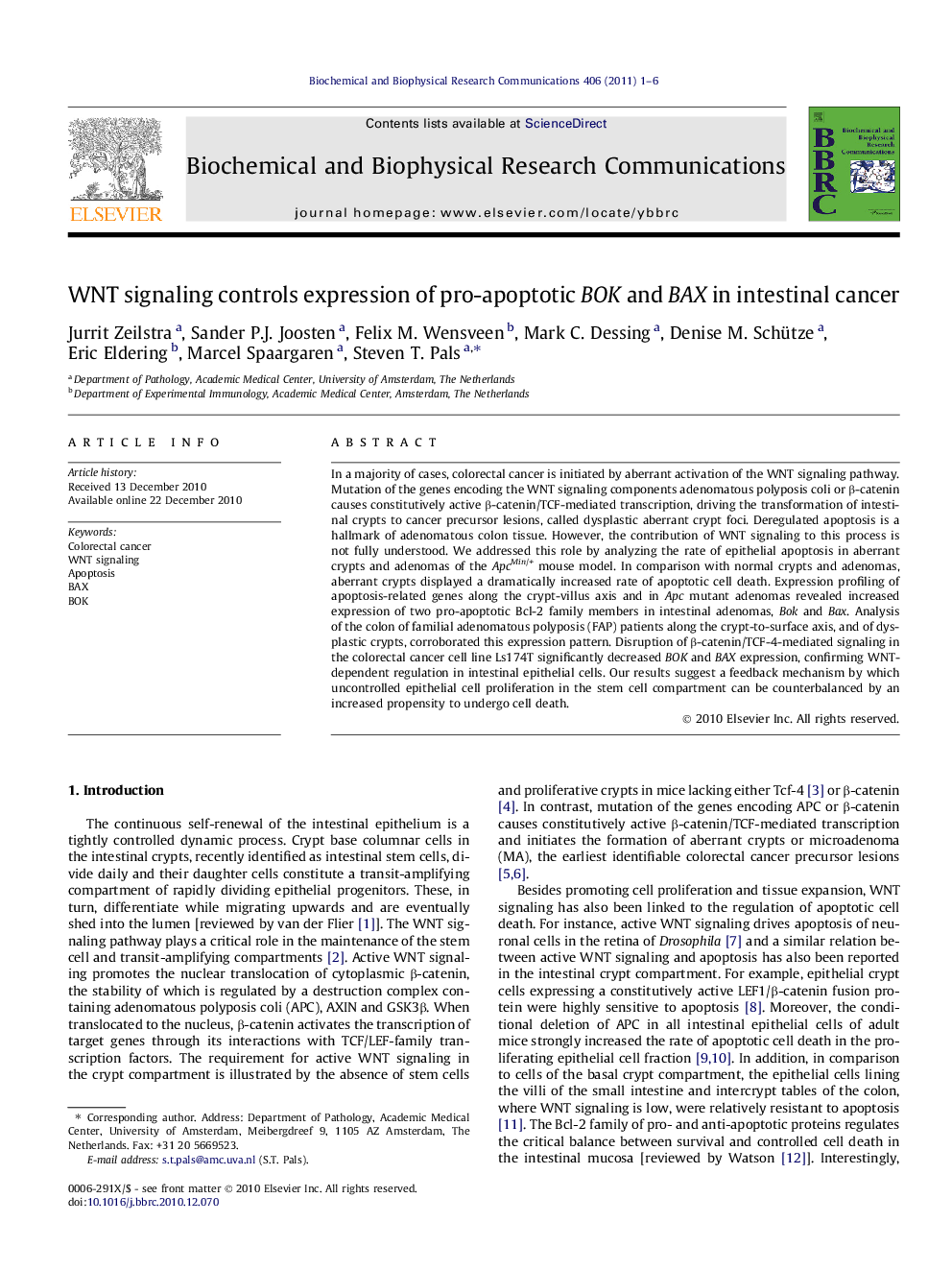| کد مقاله | کد نشریه | سال انتشار | مقاله انگلیسی | نسخه تمام متن |
|---|---|---|---|---|
| 1931010 | 1050537 | 2011 | 6 صفحه PDF | دانلود رایگان |

In a majority of cases, colorectal cancer is initiated by aberrant activation of the WNT signaling pathway. Mutation of the genes encoding the WNT signaling components adenomatous polyposis coli or β-catenin causes constitutively active β-catenin/TCF-mediated transcription, driving the transformation of intestinal crypts to cancer precursor lesions, called dysplastic aberrant crypt foci. Deregulated apoptosis is a hallmark of adenomatous colon tissue. However, the contribution of WNT signaling to this process is not fully understood. We addressed this role by analyzing the rate of epithelial apoptosis in aberrant crypts and adenomas of the ApcMin/+ mouse model. In comparison with normal crypts and adenomas, aberrant crypts displayed a dramatically increased rate of apoptotic cell death. Expression profiling of apoptosis-related genes along the crypt-villus axis and in Apc mutant adenomas revealed increased expression of two pro-apoptotic Bcl-2 family members in intestinal adenomas, Bok and Bax. Analysis of the colon of familial adenomatous polyposis (FAP) patients along the crypt-to-surface axis, and of dysplastic crypts, corroborated this expression pattern. Disruption of β-catenin/TCF-4-mediated signaling in the colorectal cancer cell line Ls174T significantly decreased BOK and BAX expression, confirming WNT-dependent regulation in intestinal epithelial cells. Our results suggest a feedback mechanism by which uncontrolled epithelial cell proliferation in the stem cell compartment can be counterbalanced by an increased propensity to undergo cell death.
Research highlights
► Intestinal adenomas initiated by aberrant activation of the WNT pathway displayed an increased sensitivity to apoptosis.
► Expression profiling of apoptosis-related genes in ApcMin/+ mice revealed the differential expression of pro-apoptotic Bok and Bax.
► APC-mutant adenomatous crypts in FAP patients showed strongly increased BAX immunoreactivity.
► Blocking of β-catenin/TCF-4-mediated signaling in colon cancer cells reduced the expression of BOK and BAX.
Journal: Biochemical and Biophysical Research Communications - Volume 406, Issue 1, 4 March 2011, Pages 1–6